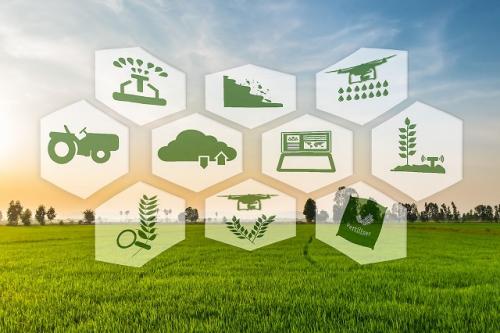Risks for agriculture in developing countries of new e-commerce rules
- Opinión

Digital technologies can offer new information and market opportunities for developing countries’ agriculture sector, including small producers in local markets. Governments need the flexibility to develop medium-term strategies to achieve that potential.
At the same time, reliance on digital technologies can further concentrate the market dominance of vertically integrated agribusinesses and transnational corporations who control national and global supply chains through production, transportation, marketing and distribution, and the online and payment platforms through which the digital markets operate.
Increased dominance will intensify cost pressures, while new threats from labour-replacing technologies and artificial foods through 3D printing are rapidly emerging.
Global agri companies like Monsanto and John Deere are positioning themselves as data centric companies. Their new business model collects micro data about farm practises and conditions and uses it to control the entire agriculture process and value chain, from planning the crops to investing in future trading in agriculture product markets.
MSMEs have already expressed concern over concentration in the markets for e-commerce platforms, e-payment solutions and cross-border delivery services.
Rules on electronic commerce that are being promoted in the WTO and other international trade agreements, notably the Trans-Pacific Partnership, will restrict countries’ ability to harness this potential and intensify the market power of incumbents, while doing nothing to close the digital divide, empower developing countries and small farmers, or ensure food sovereignty.
Agri data are valuable individual, community and national resources. Proposed rules promote a global free flow of data that allows global agriculture corporations almost total control over all agriculture data, everywhere, giving them effective control over the value chains these agriculture data based corporations mobilise.
Those risks are heightened by the chronic lack of access to reliable electricity and Internet in developing countries, which is most marked in rural areas. Until the digital divide and infrastructure deficit are addressed, small and medium farmers risk being further marginalised from markets on which their livelihoods depend.
Specific risks of the TPP-based model to agriculture, farmers and food systems include:
- Access to digital marketplace for developing countries and small producers, and consumer choice, costs money and is determined by those who control the platforms. (Half of all online shopping searches start directly on Amazon.com. So if an SME wants to sell online, they must list their products on Amazon.com in order to reach half of all online shoppers.)
- Once accessed, platforms operate through algorithms (‘source codes’) that benefit own firms and preferred suppliers (as recent competition cases against Google showed) and sponsored placements. E-commerce texts say governments can’t require disclosure of these source codes, which allows the giant tech countries control the global marketplace.
- Offshore operators of e-platforms, procurement and distributors can’t be required to have a local presence in the country, making it hard to impose and enforce domestic competition policy, consumer protection, labour and criminal laws, and contract compliance.
- Deepening countries’ commitments to supply services across the border (mode 1) and foreign corporate presence (mode 3) using ‘disruptive’ digital technologies will intensify the current exclusionary global procurement practices of private global standards, demands for scale and advanced technical testing, rigid deadlines, and insecure and transitory supply contracts.
- Digital platform operators and corporations operating from offshore can’t be required to transfer technology to build local capacity, use local computing facilities to warrant building local infrastructure, or have a local presence in the country that brings investment and jobs.
- Speculative financial trading on commodities in futures and spot markets already threaten the viability of their agricultural sector and producers. Mode 1 financial services commitments, including over the counter trades, remove these markets from domestic regulation. It will be impossible to require disclosure of the source code algorithms that drive this speculative trading.
With no effective global competition policy, the e-commerce agenda reinforces the TRIPS-mandated monopolies over seeds, genetic engineering and agri-technologies; World Bank policies to privatise land and water and bilateral investment treaties that protect foreign investments; and unbalanced agricultural trade policies that jeopardise developing country exports and food sovereignty.
- Prof. Jane Kelsey, University of Auckland, New Zealand
Clasificado en
Libre Comercio
- José Ramón Cabañas Rodríguez 01/04/2022
- Jorge Murga Armas 31/03/2022
- Jorge Murga Armas 30/03/2022
- Lori Wallach 22/03/2022
- Néstor Araujo 22/03/2022








